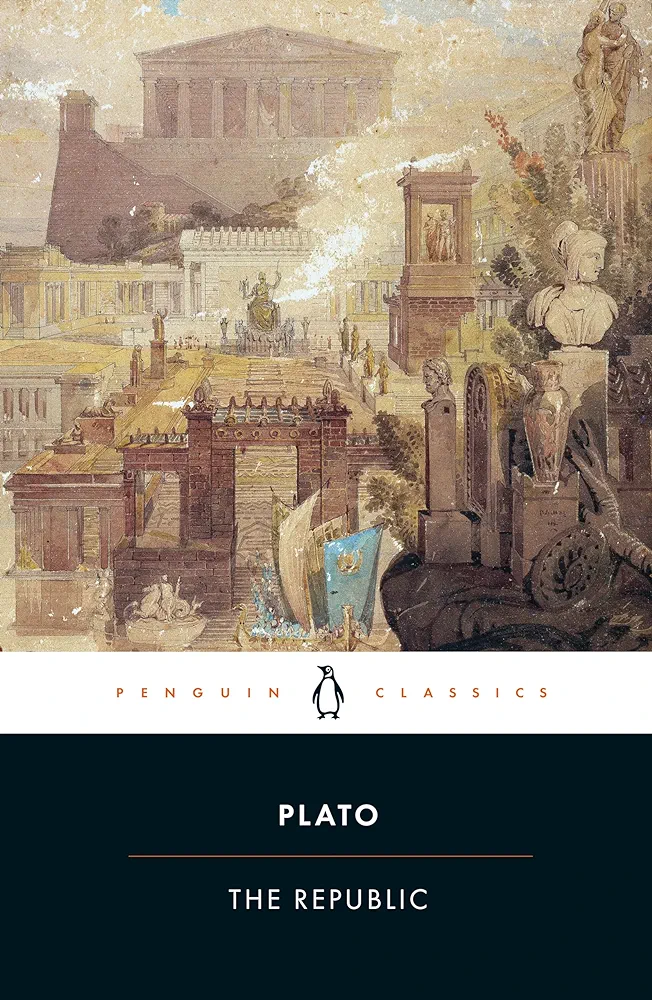A Journey into the World of Philosophy:
Unveiling Truths and Challenging Perspectives
Introduction
In late 2019, I embarked on a profound intellectual journey that would forever shape my understanding of the world. It all began with my encounter with Plato’s Republic, a book I had on my desk for several years but never fully explored. Little did I know that this initial dive into the world of philosophy would ignite a deep love and passion within me. In this article, I will share the story of how I fell in love with philosophy, the transformative impact it had on my worldview, and the challenges I faced while engaging with the works of Descartes, Aristotle, Nietzsche, Kant, and Sartre.
The Awakening of Perspective
Reading Plato’s Republic was a pivotal moment in my life. It was as if a veil had been lifted, revealing a world of profound ideas and philosophical inquiry. The concepts and arguments presented in the book challenged my preconceived beliefs and opened my mind to new possibilities. For instance, Plato’s theories of the soul and forms shook my soul; and his allegory of the cave awed me. I asked myself how Plato came up with this extraordinary parable? Not all of Plato’s theories fascinated me. his political theory is cruel and myopic. However, reading The Republic was an intellectual awakening that would set the stage for my deep dive into the vast ocean of philosophical literature.
Shattering Preconceptions
Philosophy has a unique ability to disrupt and challenge our preconceived notions about the world. As I delved into various philosophical works, I found myself questioning long-held beliefs and perspectives. It was both exhilarating and unsettling to realize that the truths I had once taken for granted were not as clear-cut as they seemed. Philosophy compelled me to confront uncomfortable truths and embrace the complexities inherent in our existence.
The Method of Doubt
One of the most fascinating aspects of philosophy for me was the 17th-century French philosopher Renè Descartes’ method of doubt. His approach to questioning everything and doubting our preconceived beliefs, or to use al Ghazali’s words our “second-hand beliefs, struck a chord with me. Descartes’ book “Discourse on Method” is a masterpiece that I deeply admire. Descartes taught me the importance of critically examining our assumptions and not accepting things at face value. This method of doubt became a guiding principle in my philosophical journey.
Expanding the Horizons of Thought
One of the most remarkable aspects of philosophy is its capacity to expand our thinking and contemplation. Unlike other disciplines that offer straightforward answers, philosophy encourages us to explore the depths of our consciousness, challenging us to think critically and consider multiple perspectives. It broadens our understanding by engaging us in deep reflection and intellectual inquiry. Through philosophy, I discovered the power of nuanced thinking and the beauty of embracing uncertainty. One may ask, so what is the point of pursuing philosophy if it is not giving us an answer? Well, I think Bertrand Russel gave the best possible answer to this question. In his book, “The Problems of Philosophy” Russel said this: “Philosophy is to be studied, not for the sake of any definite answers to its questions, since no definite answer can, as a rule, be known to be true, but rather for the sake of the questions themselves; because these questions enlarge our conception of what is possible, enrich our intellectual imagination and diminish the dogmatic assurance which closes the mind against speculation….”
The Challenge of Aristotle and Nietzsche
Engaging with the works of Aristotle and Nietzsche presented unique challenges. Aristotle’s writings can be dense and difficult to decipher. Some scholars believe that what we have from Aristotle is lecture notes for his students rather than his final work for publication. However, the effort invested in unravelling his intricate ideas was well worth it, as it allowed me to appreciate the depth of his philosophical insights. Nietzsche, on the other hand, unconventionally presented his ideas and employed plenty of aphorisms, irons and metaphors making it necessary to approach his works with an open mind and a willingness to explore beyond traditional modes of thought.
The Complexity of Kant and Sartre
Kant and Sartre, two influential philosophers, introduced me to profound ideas that required significant effort to grasp fully. However, these two philosophers are the most difficult philosophers to grasp their ideas. Frederick Nietzsche nicknamed Immanuel Kant ‘the great Chinese” because Kan’s intricate metaphysical and moral philosophy challenged Nietzsche’s comprehension and intellectual prowess. In his book, Critique of Pure Reason” Kant put human reason on trial.
For Jean-Paul Sartre, the incomprehensibility of his terms such as: “being in itself and being for itself” is enough to hurl you into hell. Sartre’s existentialist thought with its focus on human freedom and the absurdity of existence, pushed the boundaries of my understanding. Engaging with the works of these two giants demanded patience, perseverance, and a willingness to dive into the depths of their complex ideas.
A Lifelong Love Affair
My journey into the world of philosophy has been a transformative and enriching experience. It has reshaped my worldview, instilled in me a love for critical thinking, and fostered a deep appreciation for the complexities of human existence. Philosophy has become an integral part of my life, guiding me in navigating the profound questions that lie at the core of our being. It is a lifelong love affair that continues to inspire me to seek knowledge, challenge assumptions, and embrace the beauty of intellectual exploration.
Conclusion
The reading of Plato’s Republic marked the beginning of a profound journey into the world of philosophy, though I don’t agree with everything he said. Through countless hours of reading and contemplation, I have come to appreciate the transformative power of philosophy. It has shattered my preconceptions, expanded my capacity for critical thinking, and challenged me to embrace the complexities of existence. While the works of Descartes, Aristotle, Nietzsche, Kant, and Sartre presented their unique challenges, they also offered profound insights and intellectual growth. Philosophy is not a discipline that provides easy answers, but rather a lifelong pursuit of truth and understanding. It continues to shape my perspective and guide me in navigating the complexities of life.
Written by Cali M. Diini





